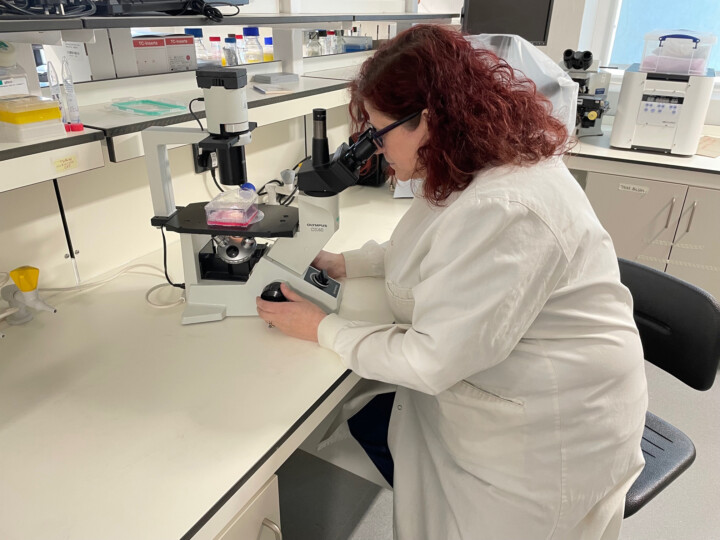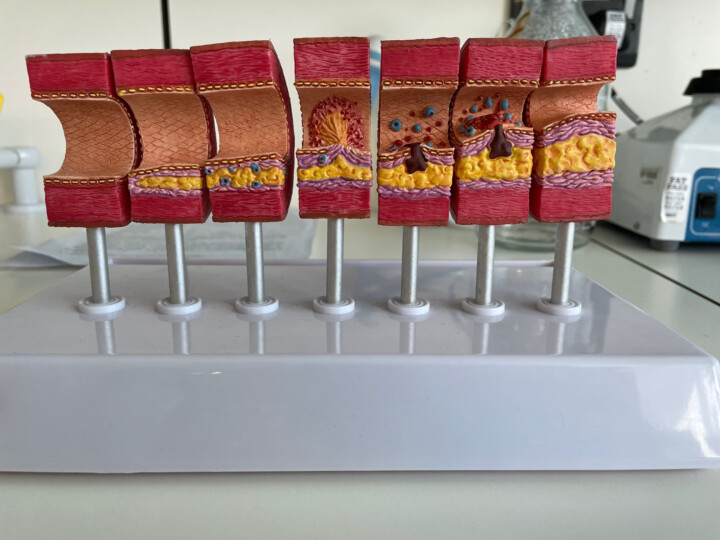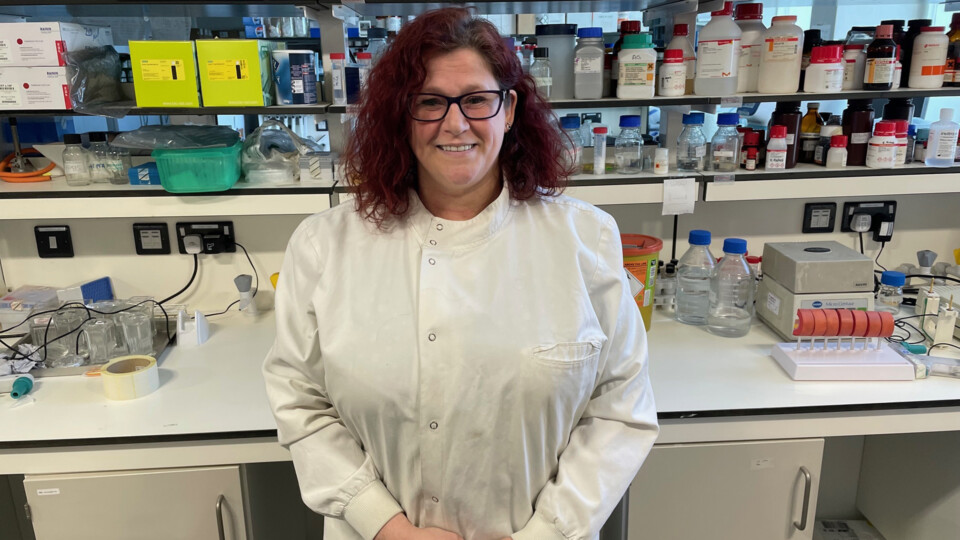£400,000 for new gestational diabetes umbilical chord study
The University of Bradford has been awarded more than £400,000 to carry out research into gestational diabetes among women from different ethnicities.
Dr Kirsten Riches-Suman, Associate Professor of Biomedical Science at the University of Bradford, is leading the research project into gestational diabetes which commonly affects women during pregnancy.
The three-year study, conducted at the University of Bradford, will recruit 100 pregnant women of white Caucasian and South Asian heritage at high risk of gestational diabetes.
The health of their blood vessels will be measured both during their pregnancy and for 18 months after they have given birth.
In addition, tissue from the placenta and umbilical cord from the women’s births will be used for laboratory analysis. The study has been awarded £419,500 from the Medical Research Council (MRC).

Dr Kirsten Riches-Suman looks under the microscope at the University of Bradford. Images credit: University of Bradford
Dr Riches-Suman said: “It is an exciting project and important work. Gestational diabetes is a growing health problem and needs much more research.
“If we can establish a better understanding about why gestational diabetes is a risk for children and their mothers, we can look at therapies and pathways so they can live longer healthier lives.
“Those taking part in this study will leave a legacy and make a difference to the lives of others.
“Because of Bradford’s diverse population, it is great to be giving back to the people who will be taking part in this study.”
What is gestational diabetes?
Gestational diabetes is a temporary condition where the mother develops diabetes during pregnancy and usually resolves upon delivery of the baby. But mothers who had gestational diabetes during their pregnancy are more likely to develop Type 2 diabetes and cardiovascular disease. The children from these pregnancies are also more likely to be overweight and have metabolic and cardiovascular problems.
Gestational diabetes presents in 14 per cent of pregnancies globally with ethnicity playing a key role, affecting up to 21 per cent of South Asian pregnancies. Other risk factors include increasing age and low socio-economic background.

A model showing the stages of a blockage of a blood vessel. Images credit: University of Bradford
How will the study work?
‘How does gestational diabetes affect vascular health of both mother and child in a diverse population?’ aims to identify the molecular and cellular causes of vascular (anything related to blood vessels) dysfunction in women with and without gestational diabetes, and from Caucasian and South Asian heritage.
University researchers will look at the measurement of clinical markers of blood vessel health during and after delivery of a baby.
The study will recruit up to 100 expectant mothers at high risk of gestational diabetes during their routine 24-to-28-week oral glucose tolerance test NHS routine antenatal appointments.
Upon delivery, the placenta and umbilical cords of participating mothers will be collected for the study. The umbilical arteries and vein will be dissected out of the cord and blood vessels from the placenta will also be collected.
Alongside the study of mothers, researchers will also recruit 40 age-and gender-matched teenaged children of mothers with or without gestational diabetes, identified through the Born in Bradford (BiB) study.
Researchers will perform the same tests on their blood vessel health. The findings will be linked back to both their own characteristics including Body Mass Index (BMI) and ethnicity and the maternal characteristics that were collected at the time of delivery, such as age, ethnicity, BMI and presence of gestational diabetes.
Different is what we do
UNDISCOVERED – changing the world with our research
Our research study on gestational diabetes among women from different ethnicities is another example of how we are changing the world for the better.
Through our research we are discovering new innovations that have to potential to change lives locally and globally. Find out more on our website

